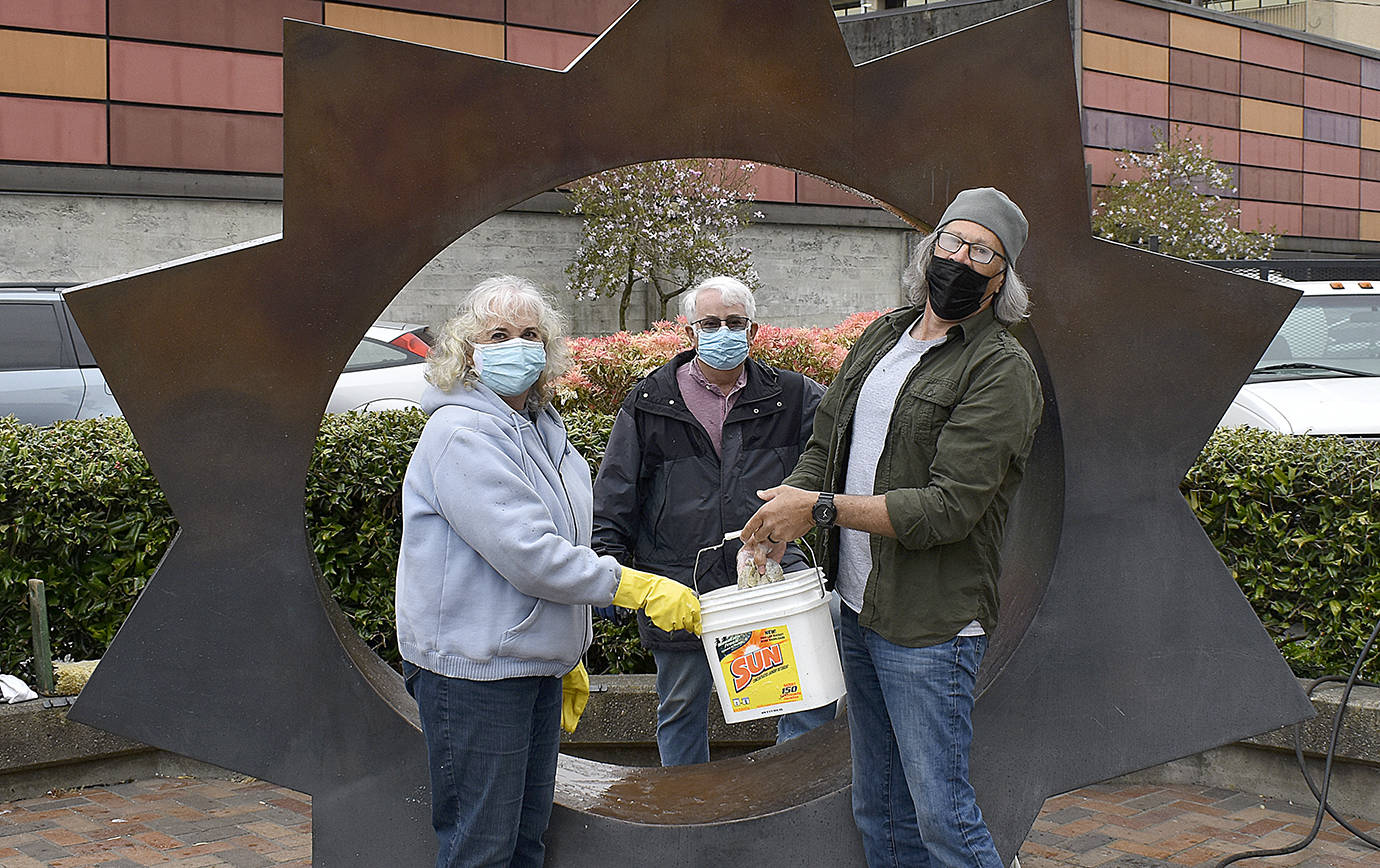After revisions and much discussion, the Aberdeen City Council approved a five-year contract with the Downtown Aberdeen Association for the ongoing administration of the city’s Main Street program.
The agreement approved at the last council meeting is for $5,000 a month — $60,000 annually for five years.
“Staff is recommending that a five-year performance period (as recommended by the State and National Main Street organizations) be approved so that it gives the Downtown Aberdeen Association time to strengthen their program and build trust and stability in our city,” read the report from Community Development Director Lisa Scott.
The contract comes after the city’s initial three-year contract expired at the end of last year – gaining Main Street designation is typically a three-year process, but Aberdeen achieved it in about eight months.
The Main Street designation gives downtown Aberdeen businesses access to resources, including some federal tax advantages for people who make investments in their downtown property. There are also grants that the association can apply for to help with local projects because they are now one of the state’s recognized Main Street programs.
The council had previously asked for more details about “deliverables” within the contract, specific goals and projects for downtown Aberdeen revitalization the association had planned. Another was the frequency of reports detailing actions toward those deliverables to the council. The association provided the council with a lengthy list of its ongoing and planned activities, including continuing to “maintain an active organization of property and business owners in the city’s downtown area” and “actively participate in business retention and recruitment for downtown Aberdeen.”
“There has been a lot of work on this document and definitely with the amendments it helps address the concerns many of us had when this came before us earlier … and one of the issues was, what specific deliverables were we expecting from the Downtown Aberdeen Association,” said Councilwoman Liz Ellis. “I just wondered if it makes sense to be a little more specific with what the annual report should include, or if you feel the spirit is captured in just (requiring) an annual report.”
Councilwoman Deborah Ross said, “As part of the national association of Main Street they’re required to submit quarterly and annual reports, and that’s pretty intensive. We only have one employee and it takes a lot of time to track and monitor and put all this stuff into a report. If we start putting additional (requirements) on that I’m afraid it would just be too burdensome. I feel that because the reports put together are pretty explicit we should be able to get he information we need from (an annual report).”
The $5,000 monthly from the city goes toward operation of the Main Street program, including rental on the office space it occupies on South I Street and paying director Wil Russoul. To maintain Main Street designation, it’s required by the program to have a full time director. The money was included in this year’s city budget.
Councilman Nathan Kennedy offered an amendment disqualifying the Downtown Aberdeen Association from city lodging tax (LTAC) funds because the contract deliverables provided by the association included activities like Winterfest and Summerfest, “which are also funded by LTAC, so it really seems like they’re double dipping here and getting money from this contract as well as money from LTAC.”
Ross countered, “I’d just like to say that I believe the $60,000 we provide them annually is more for operational costs, keeping the doors open, not for their special projects.”
Councilwoman Dee Ann Shaw said the money in the contract “supports operations, and not even all the operations, of Main Street. The festivals (the Downtown Aberdeen Association) do are done by volunteers.”
City Attorney Patrice Kent said that would require study as to the legality of such an amendment, so Kennedy withdrew his amendment and instead proposed tabling the contract so more research could be done on the LTAC funding, but that motion failed 7-4. In the end, the contract was approved on a voice vote.
Russoul said later that he is in constant contact with some of the other 37 Main Street cities in the state, where ideas are shared for improvements in the downtown core. “We regularly have informal meetings and conference calls to support one another,” he said, exchanging information like “here’s what’s happening in our town, how do you deal with it in your town.”
The program relies heavily on volunteers, said Russoul. Aberdeen’s Main Street District encompasses more than six blocks of downtown; most other Main Street cities encompass two or three, and have paid staff to to hand out assignments.
“We have volunteers,” said Russoul. “With those volunteers we do our best to take the temperature of what is going on downtown, the dynamics, and look at projects that have boiled up from the Main Street program and property and business owners. We meet with local businesses and ask what they think. Sometimes we roll out projects on a small scale to see how they work.”
A lot of behind-the-scenes work is done, dozens of meetings, with people potentially interested in doing business in the downtown core. The group also holds monthly roundtables, where downtown businesses can share their concerns and ideas, and solutions and programs can be developed.
Because of that outreach, “A lot of us now are on the same page,” said Russoul, and are finding “how we can combine efforts” to attract and retain successful downtown businesses and improve the city’s downtown core.
More information about the Downtown Aberdeen Association can be found at downtownaberdeen.com and on the association’s Facebook page. More information on the state’s Main Street program can be found at dahp.wa.gov/local-preservation/main-street-program.


